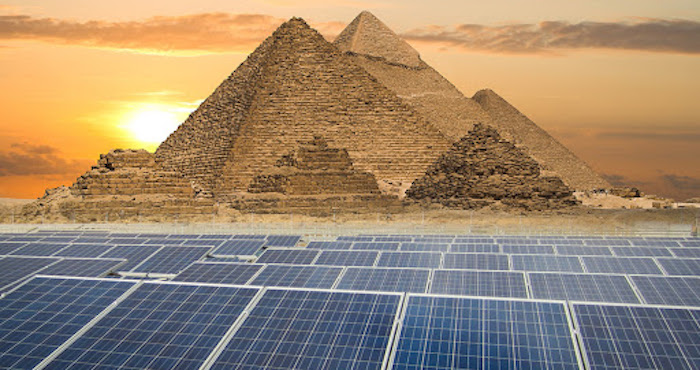Egypt launched a $500 million solar facility in the southern city of Aswan on Saturday to enhance renewable energy generation following the severe power outages experienced last summer.
The Abydos Solar PV Plant, developed by the Dubai-based energy firm AMEA Power, boasts a capacity of 500 megawatts and was completed in a mere 18 months. The plant is expected to produce 1,500 gigawatt-hours of clean energy each year, sufficient to supply power to approximately 300,000 homes while reducing CO2 emissions by 782,300 tonnes, according to AMEA Power.
Prime Minister Moustafa Madbouly said at the plant’s inauguration ceremony that the project is a “crucial step toward increasing the adoption of renewable energy in Egypt” and is part of a “national strategy focused on diminishing dependence on conventional energy sources.”
Moustafa noted that this project would aid the government’s attempts to mitigate summer power outages, which have become common during high-demand electricity.
Last summer, Egypt experienced daily power outages lasting as long as three hours last summer, resulting from high cooling demands amid soaring temperatures.

Hussain Al Nowais, chairman of AMEA Power, said that the solar facility “will expedite Egypt’s green energy strategy and assist in addressing the power shortages experienced over the past year,” adding that the first electricity from the plant was delivered to the national grid last week.
Funding for the project was provided by the International Finance Corporation, the Dutch Entrepreneurial Development Bank, and the Japan International Cooperation Agency.
Aswan, recognised for its consistently high solar radiation levels, also hosts the Benban Solar Park, which, at 1,650 megawatts, is one of the largest solar facilities in Africa and the Middle East, inaugurated in 2019.
On Saturday, the Egyptian government finalized a power purchase and land agreement with AMEA Power for an additional wind power project of 500 megawatts valued at $600 million in Ras Shukeir, located north of Hurghada along the Red Sea.
The Egyptian government aims to increase the proportion of renewable energy in its energy mix to 42 per cent by 2030, up from 11.5 per cent in 2023, according to Prime Minister Madbouly.


